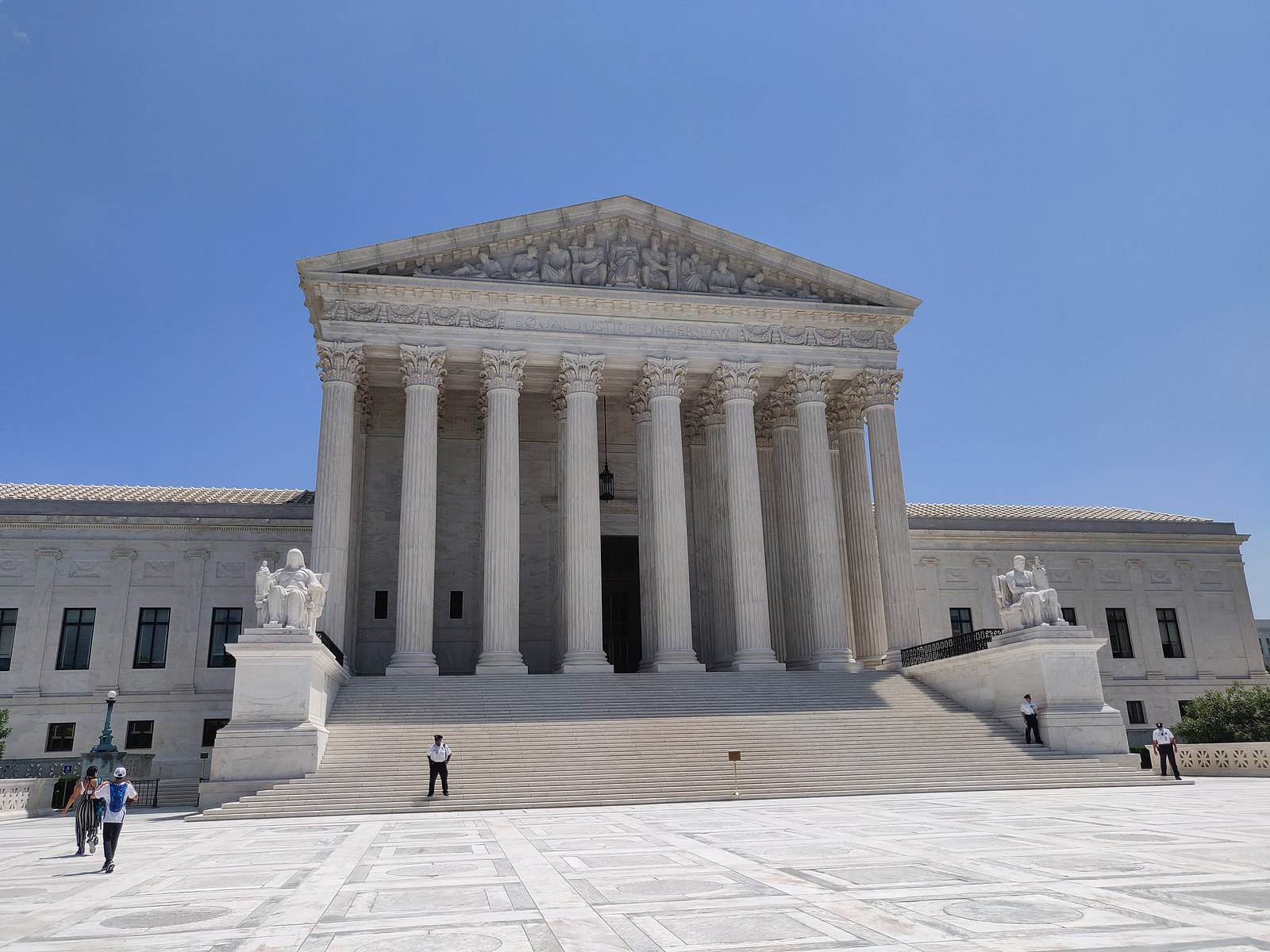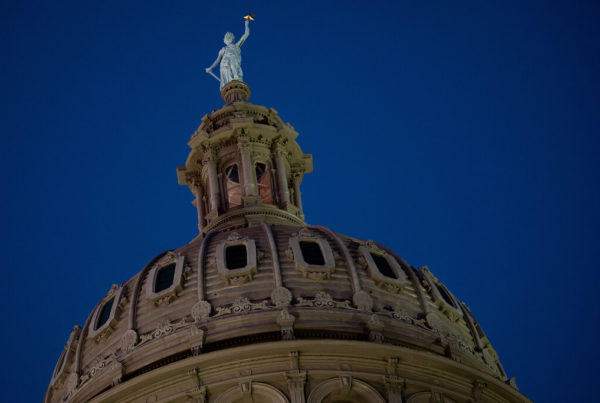The U.S. Supreme Court issued its first orders and opinions of the new year on Monday morning without any blockbuster announcements, one day after the 50th anniversary of the Roe v. Wade decision.
Constitutional law scholar Stephen Vladeck, a professor at the University of Texas at Austin School of Law, joined the Standard to talk about the first orders and what to expect from the court this term. Listen to the interview above or read the transcript below.
This transcript has been edited lightly for clarity:
Texas Standard: We should begin with the decision announced today in a case involving veterans disability benefits and the tolling of a start date for the for a claim. The plaintiff said he was too sick to know he could apply for these benefits. He cited an exception; the VA didn’t acknowledge it. There’s this principle of equitable tolling, right, that even if Congress sets a time limit, well the plaintiff argued, the time limit should be extended if there are extraordinary circumstances. The court didn’t seem to be buying that.
Stephen Vladeck: No, I mean, we had a unanimous decision by Justice [Amy Coney] Barrett this morning, the first of the court’s term, where the court said, as compelling as this case might be, as sympathetic as we might be, you know, to Mr. [Adolfo] Arellano, Congress didn’t allow for this kind of tolling. In cases like this, the one-year period for filing disability claims, if you’re a veteran, is mandatory and not subject to any kind of exception based on hardship. So, a loss for Mr. Arellano, a loss for, you know, a lot of other similarly situated veterans.
You mentioned this is a 9-0 decision, a unanimous court. I think a lot of people are looking for how Associate Justice Ketanji Brown Jackson might be weighing in here and trying to read the tea leaves, if there are any clues as to where she might fit in on this bench, right?
Yeah. I mean, I think, you know, any time the court hands down an opinion and it’s a new court, we’re going to be looking for those kinds of signs. You know, we’ve seen some signs already in orders that the justices have handed down in cases that were not given plenary review and were not argued – we’ve seen Justice Jackson write a couple of dissenting opinions with regard to cases the court did not take up and with regard to emergency relief that the court was asked to grant. But yeah, we’re still waiting for the first opinion from Justice Jackson for the court, probably sometime in the next couple of weeks. Again, part of the issue here is that, you know, we’re now 16 weeks into the October 2022 term and we’re only getting our very first decisions in argued cases today. That’s unprecedented for how long we’ve gone.
There was another case that the court decided not to decide, saying it was improvidently granted – the translation, I guess, “we’ve changed our minds. We shouldn’t be looking at this particular case.” Is that the idea?
Basically. I mean, so this is, in Supreme Court parlance it’s called a DIG, for dismisses improvidently granted. And, you know, this happens sometimes when the court grants a case and thinks that it’s deciding one question and then it holds oral argument and the argument helps the justices realize that actually that question’s not properly presented in the case, or maybe the parties are fighting about something else.
That’s what happened here. I mean, this was a dispute about attorney-client privilege where the justices thought they were granting it to resolve a broader question about what’s called dual use privilege issues, where basically a law firm is providing advice both in its capacity as an attorney to a client and as sort of a more general policy advisory. But the problem is that at the oral argument, it became clear that the parties actually didn’t disagree on the principal question the court had granted. That’s why, no surprise, two weeks later, the court saying, “all right, well, then go away.”
There’s a big public spotlight on the court post-Dobbs, obviously. And we should focus on that since we’re at the 50-year mark for Roe v. Wade. We’ve learned that the investigation into who leaked the Dobbs decision weeks before its official release came up empty. What do you make of it?
The report we got from the court late Thursday afternoon was really quite remarkable, both in the insights it provided to the investigation – and all the things that the court didn’t do, right? So, you know, the justices themselves were not required to sign sworn affidavits as opposed to everybody else in the court. The court really didn’t try very hard to look outside the building, to talk to friends or family members of court employees, to talk to the journalists who were involved. And so I think, you know, it’s not a big surprise, if you have an investigation that is so hamstrung, that it’s going to have a hard time turning up any actual evidence.
I think the messier question is, you know, should the court have invited a more aggressive investigation? Would it have been a good precedent for the court to invite maybe FBI investigators to come into the building? And so I think the court was in a very tricky position here. No one, I think, is satisfied with this result. But I also think it’s a broader reflection on just how heated emotions are on all sides about the Supreme Court right now, that there is basically no way this was going to end well for the court once the leak happened last May.
Are there any cases Texans should be watching for in this term? I was looking at one or two free speech cases, a sovereign immunity case relating to enforcement of election law.
We’ve got a lot of big stuff coming up. We had those affirmative action cases that were argued in the fall. We have cases about President Biden’s student loan debt relief program; it’s going to be argued in February. You know, we have other big cases about immigration policy, the title 42 policy; it’s going to be argued in February.
So I think by the time we’re done in June, this is going to be really a remarkably important and momentous term. You know, perhaps not quite as headline-grabbing as last term was. But, you know, that’s only because last term, I think, was such an outlier. This is a big term. It’s going to affect a lot of people.















